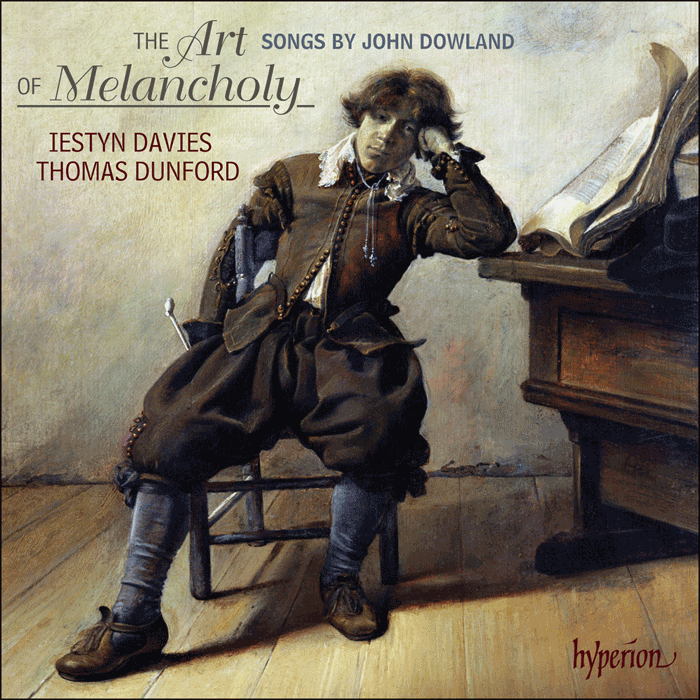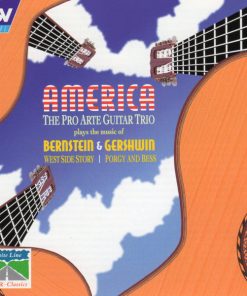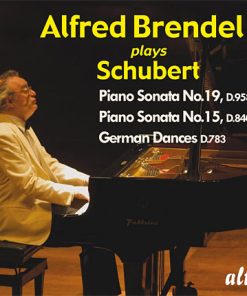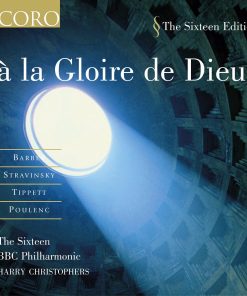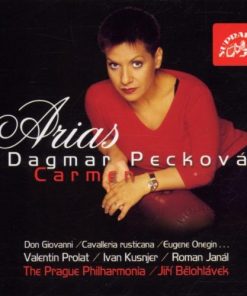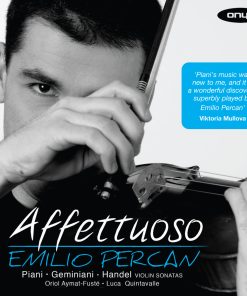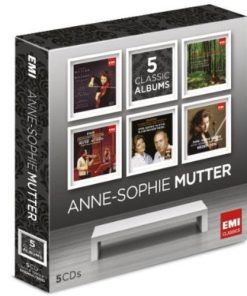DOWLAND: The Art of Melancholy (Lute Songs) – Iestyn Davies Hyperion
$ 20,99 $ 12,59

1
Sorrow, stay, lend true repentant tears[3’08]
2
Come again, sweet love doth now invite[4’16]
3
Go, crystal tears[3’19]
4
Mrs Winter’s Jump[0’48]
5
I saw my lady weep[5’43]
6
Flow, my tears, fall from your springs[4’45]
7
Can she excuse my wrongs?[2’23]
8
Behold a wonder here[3’04]
9
Semper Dowland semper dolens[7’02]
10
In darkness let me dwell[3’52]
11
Time stands still[4’05]
12
All ye whom Love or Fortune hath betrayed[4’29]
13
Say, Love, if ever thou didst find[2’01]
14
Lachrimae[5’37]
15
Come away, come sweet love[2’05]
16
Shall I strive with words to move?[2’01]
17
Burst forth, my tears[4’54]
18
Fortune my foe[2’47]
19
Come, heavy Sleep[3’55]
20
Now, oh now I needs must part – The Frog Galliard[6’19]

Of all English songwriters, John Dowland has enjoyed the most powerful afterlife, his voice unmistakably present in any version of his songs. The preeminent marriage of music and poetry, the nuanced shades of wit and melancholy and the extraordinary writing for both lute and voice all combine to proclaim Dowland as the father of English song.
Countertenor Iestyn Davies has gained international fame through his operatic performances (including lead roles at the Metropolitan Opera of New York and English National Opera) and recordings (including his Gramophone-Award-winning recording of Arias for Guadagni). Hearing him in this intimate musical setting is a revelation—as is the playing of the young lutenist Thomas Dunford.
Fast Shipping and Professional Packing
Due to our longstanding partnership with UPS FedEx DHL and other leading international carriers, we are able to provide a range of shipping options. Our warehouse staff are highly trained to pack your goods exactly according to the specifications that we supply. Your goods will undergo a thorough examination and will be safely packaged prior to being sent out. Everyday we deliver hundreds of packages to our customers from all over the world. This is an indication of our dedication to being the largest online retailer worldwide. Warehouses and distribution centers can be located in Europe as well as the USA.
Orders with more than 1 item are assigned processing periods for each item.
Before shipment, all ordered products will be thoroughly inspected. Today, most orders will be shipped within 48 hours. The estimated delivery time is between 3-7 days.
Returns
The stock is constantly changing. It's not entirely managed by us since we are involved with multiple parties such as the factory and our storage. The actual stock can fluctuate at any time. Please understand it may happen that your order will be out of stock when the order is placed.
Our policy is valid for 30 days. If you haven't received your product within 30 days, we're not able to issue either a return or exchange.
You are able to return a product if it is unused and in the same condition when you received it. It must also still remain in the original packaging.
Related products
MUSIC CD
MUSIC CD
MUSIC CD
